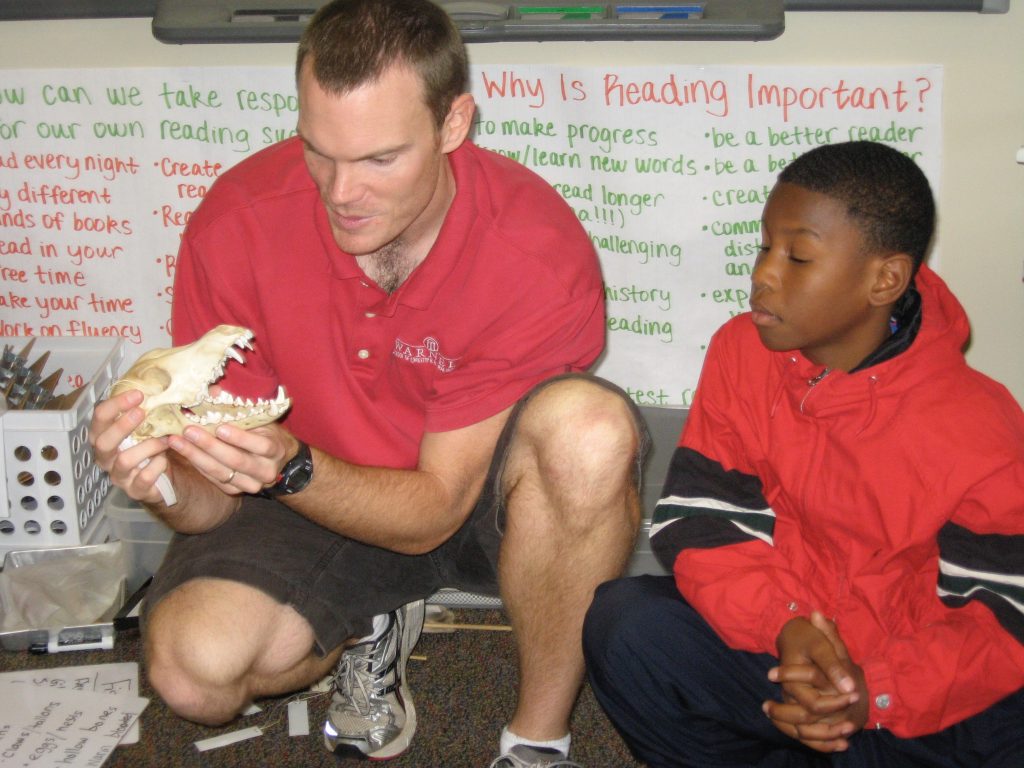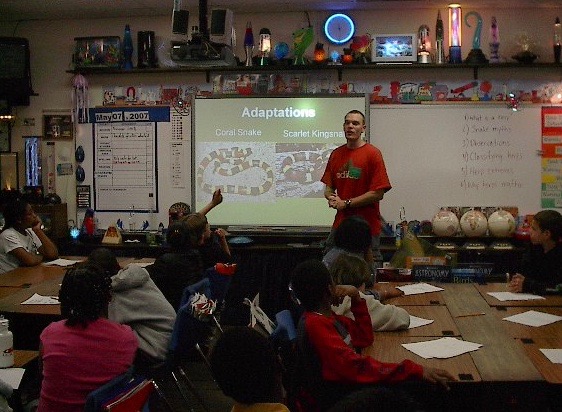K-12 Outreach Programs

Members of the Larson Lab love to connect with K-12 students through outreach programming! If you are interested in scheduling a conservation-related outreach program, event or training for your group, please contact us to determine which program best meets your needs. If you don’t see what you’re looking for on this list, our Lab can also work with you to create an environmental education program that will help you achieve your goals.
Animal Classification (Created by L. Larson)
Purpose: Students will be able to explain the importance of classification. Students will be able to identify vertebrates and invertebrates and classify vertebrates into distinct classes.
All About Herps (Created by L. Larson & A. Ruiz)
Purpose: Expose kids to the cool world of herps. Dispel common myths about reptiles and amphibians (particularly snakes) and help students understand why herps are important.
Awesome Adaptations (Created by L. Larson)
Purpose: Students will be able to define the term “adaptations,” describe their importance, and discuss specific examples of variations in external features and behaviors that help animals (including humans) to survive in their environment.
Creepy Crawly Critters (Created by L. Larson, A. Ruiz, & W. Gosnell)
Purpose: Students will learn to appreciate invertebrates, amphibians, and reptiles, and be able to identify how these animals interact with humans in local and global ecosystems.
Global Climate Change (Created by L. Larson)
Purpose: Students will develop an understanding of factors contributing to climate change and discuss solutions that can help to mitigate global warming.
Pollution Solutions (Created by L. Larson)

Purpose: Students will be able to define pollution and provide several examples of pollution that affect plants and animals.
The Truth About Bats (Created by L. Larson)
Purpose: Expose kids to the cool world of bats. Dispel common myths and help students understand ways bats help humans.
Water Conservation (Created by L. Larson)
Purpose: Present young learners with the knowledge and skills necessary to engage in effective water conservation behaviors.
What Do You See When You Look at a Tree? (Created by L. Larson)
Purpose: Help young learners develop a new perspective regarding a familiar organism: trees. Through discovery hikes, art, and interactive activities, students will begin to unveil the complexity of trees and their important role in local ecosystems.
Wildlife Management (Created by L. Larson)
Purpose: Students will be able to discuss the history of wildlife management in the U.S., identify modern wildlife management strategies, and consider the ecological and social implications of a hypothetical management scenario.